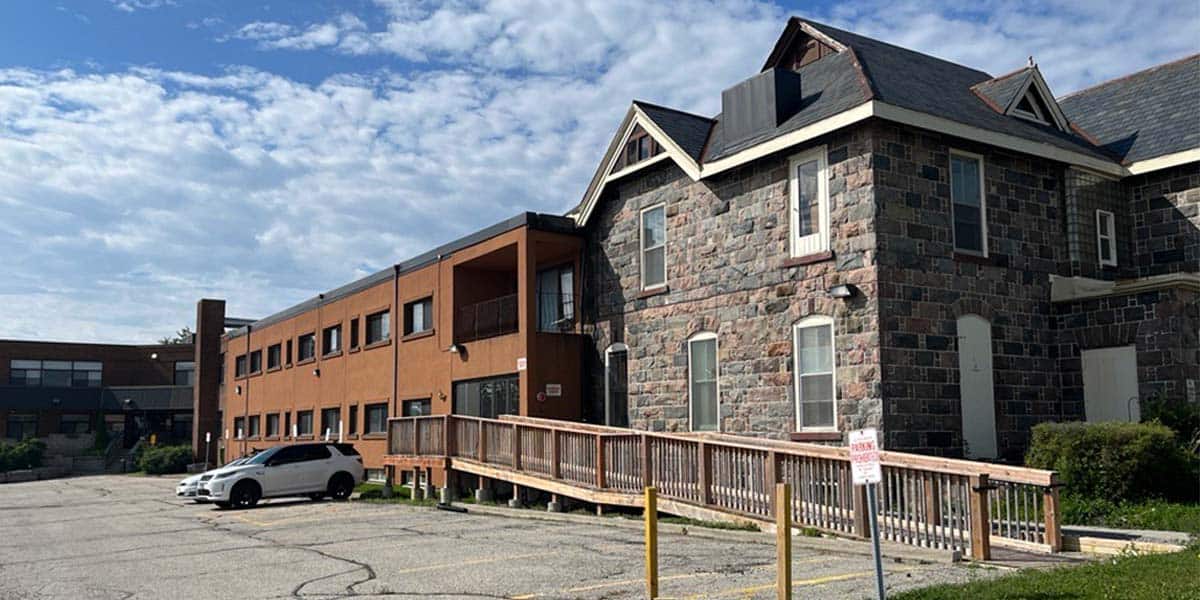First residents welcomed to Whitby homeless shelter
Published March 20, 2024 at 3:04 pm

The first residents of Whitby’s new homeless shelter are officially home.
Durham Region announced they welcomed the first resident on the morning of March 20. While today offers a new beginning for the 45 residents of the downtown low-barrier shelter, it also marks the end of a long struggle to get the place open at all.
The shelter is in a building which was initially built as a farmhouse in the 1880s and was converted into a nursing home in the 1950s. During its time as Sunnycrest Nursing Home, it was twice expanded. However, Sunnycrest was forced to shut down due to mismanagement of the COVID-19 pandemic.
The building then sat empty for some months, during which time Durham’s unsheltered population nearly tripled. By fall 2023, existing support resources were “exhausted” due to the influx.
By then, the Region had already bought the property for conversion into a shelter. They announced the purchase last August “to help address the urgent need for housing and services.”
“This is part of the continuum of care across Durham to support those experiencing or at risk of homelessness. This low-barrier shelter will help to provide immediate solutions that will help people who need it most,” they continued.
However, the project was slowed by an intense backlash from some residents. Public engagement sessions quickly turned almost violent with one man physically threatening Mayor Elizabeth Roy and Councillor Maleeha Shaheed.
Despite the controversy, the Region remained committed to the shelter. However, the pushback did prompt several concessions on the project such as tighter security and a lower resident cap.
In February, the Region appointed the Christian Faith Outreach Centre to run the shelter. “CFOC is committed to providing safe, supervised, housing-focused shelters and services for people experiencing homelessness and partnering with the community to end chronic homelessness in Durham Region,” the Region wrote at the time.
“With 1635 Dundas Street E. being open as a low barrier shelter, we are officially able to begin helping people to get back on their feet,” said Durham Chair John Henry, “As part of the Region’s housing-first approach, supports, services and strategies, including 1635 Dundas, lead to housing to help people end their homelessness while meeting their basic needs. The ultimate goal here is to end chronic homelessness.”
INdurham's Editorial Standards and Policies





